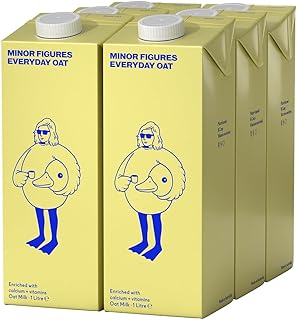In the realm of food choices, a significant shift is underway as plant-based alternatives gain traction, challenging traditional dairy products. This movement towards dairy-free options is not just a passing trend but a fundamental change in global dietary habits. With the dairy alternatives market projected to exceed US$ 80 billion by 2033, the surge in demand is fueled by a convergence of factors, including health consciousness, ethical considerations, and sustainability concerns.
Dairy alternatives encompass a wide array of plant-based substitutes for milk, yogurt, cheese, and more, offering options sourced from soy, almonds, oats, coconut, rice, and cashews. These alternatives cater to a diverse consumer base, ranging from those with lactose intolerance to individuals embracing vegan or plant-based diets. The versatility of these products allows for various applications, from direct consumption to incorporating them into cooking and baking recipes.
One of the primary drivers behind the rise of dairy alternatives is the increasing prevalence of lactose intolerance and milk allergies. This condition affects a significant portion of the global population, prompting many consumers to turn to almond milk, soy yogurt, and other plant-based options. These alternatives not only provide essential nutrients but also promote inclusivity in dietary choices, appealing to people of different ages, backgrounds, and dietary preferences.
The surge in veganism and the growing emphasis on health and wellness have further propelled the demand for plant-based dairy substitutes. Products like almond milk, oat milk, and soy milk have evolved to offer a variety of flavors and formulations, catering to the nutritional needs and culinary preferences of consumers. This trend is particularly evident in regions like India, where a substantial vegetarian population drives the market for plant-based milk, yogurt, and cheese alternatives.
Aside from health and ethical considerations, environmental sustainability plays a pivotal role in driving the dairy alternatives market. Traditional dairy farming practices are resource-intensive and environmentally taxing, leading many consumers to opt for plant-based options that have a lower ecological footprint. Companies like Velike, with its oat-based vegan milk sourced from local farms, exemplify the growing emphasis on sustainability in food production.
Despite its rapid growth, the dairy alternatives market faces challenges such as higher production costs and concerns over taste and texture. Plant-based products often come at a premium compared to traditional dairy items, posing a barrier to widespread adoption. While advancements in taste and texture have been made, some consumers still perceive plant-based alternatives as lacking the creaminess or indulgence associated with dairy products.
Key players in the dairy alternatives market, including Danone S.A., SunOpta Inc., and Blue Diamond Growers Inc., continue to drive innovation and expand their product offerings, fueling the market’s growth worldwide. With a focus on rising awareness of lactose intolerance, the increasing popularity of vegan diets, and ongoing advancements in product development, the dairy alternatives market is poised for significant expansion in the coming years.
As plant-based dairy alternatives become more mainstream, they are reshaping global dietary patterns and offering consumers a sustainable, ethical, and health-conscious choice. From milk to cheese, yogurt to ice cream, these alternatives are not just dietary options but lifestyle decisions with far-reaching implications for personal health and environmental sustainability. The future of the food industry is undoubtedly intertwined with the growth and evolution of dairy alternatives, signaling a transformative shift in how people consume and perceive food.
📰 Related Articles
- Xerox Boosts Market Presence with Lexmark Acquisition, Stock Surges
- US Office Supplies Market Surges Amid Remote Work Trends
- Sustainable Beauty Packaging Market Surges, Driven by Eco-Conscious Consumers
- Soy Beverage Market Surges: USD 44.7 Billion by 2035
- Skincare Market Surges: $194.05B Projection by 2032






